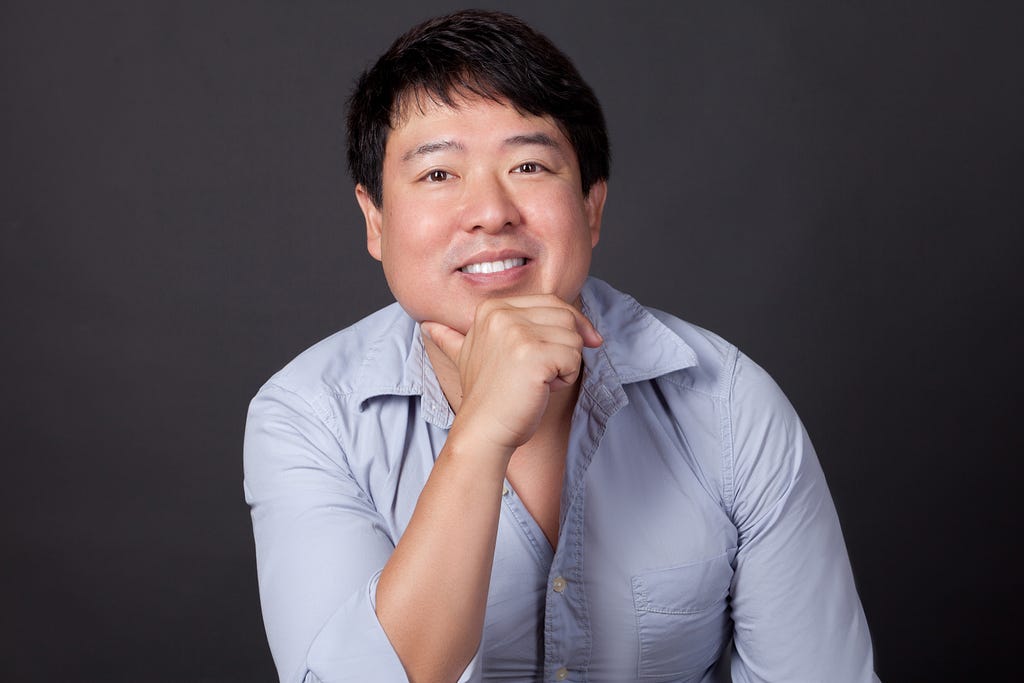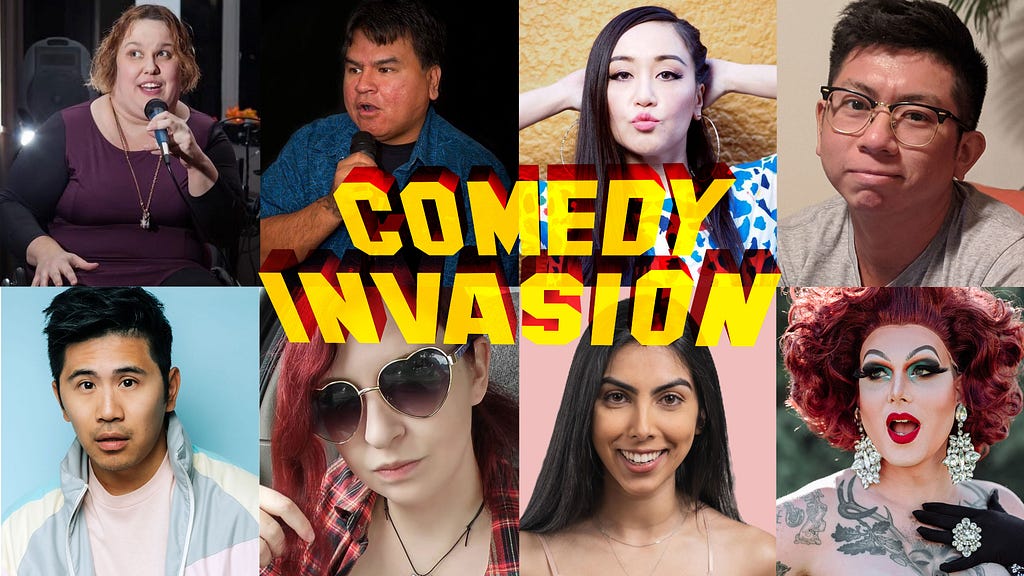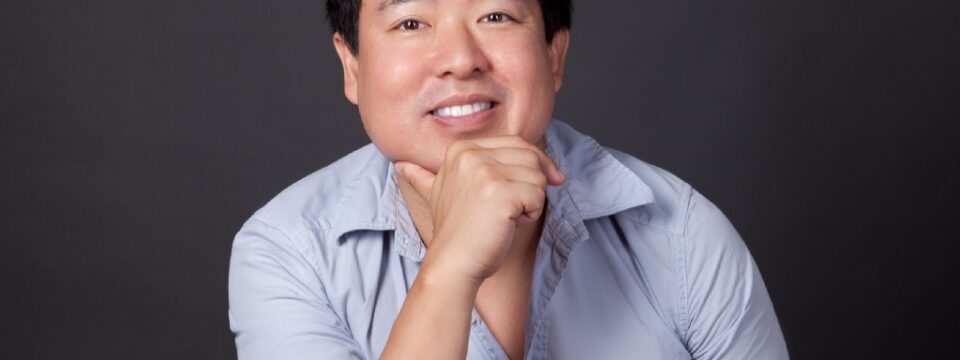
Be stubborn with your artistic vision, but be receptive to everyone’s feedback. It took me a couple of decades to learn that… but it’s definitely the most important precept I wish someone told me when I first started.
As a part of my series about leaders helping to make the entertainment industry more diverse and representative, I had the distinct pleasure of interviewing Quentin Lee.
Quentin Lee is a Hong Kong-born Canadian-American film writer, director, and producer. He is most notable for the television series Comedy InvAsian and feature films The People I’ve Slept With (2009), Ethan Mao (2004), and Shopping for Fangs (1997), which he co-directed with Better Luck Tomorrow (2002) director Justin Lin. Lee’s films often feature male lead characters who are Asian American and gay, two minority groups generally not seen as lead characters in mainstream Hollywood films.
Thank you so much for joining us in this interview series! Can you tell us a story about what brought you to this specific career path?
As young as eleven, I was making short films with my dad’s super 8 camera in Hong Kong in the 80s. I just followed my passion and eventually made it to UCLA graduate film school in 1993 where my friend Justin Lin and I made our first feature Shopping for Fangs that premiered at Toronto International Film Festival in 1997 and that started both of our career.
Can you share the most interesting story that happened to you since you began your career?
In 1999 after I made my first feature my friend Peter Chan hired me to be his assistant on Dreamworks’ The Love Letter. Steven Spielberg was on set all that summer with his wife Kate Capshaw and his son Isaac. And I observed how he produced which was basically leave the director alone. A Hong Kong journalist came on set to visit Peter and she asked Spielberg for an impromptu interview. She handed her camcorder to me and had me film Spielberg as she interviewed him… so I shot Steven Spielberg in 1999! I didn’t think much of it then but now I think back it was probably the most interesting summer I’ve ever had, especially for a kid from Hong Kong who grew up loving Spielberg movies!
Can you share a story about the funniest mistake you made when you were first starting? Can you tell us what lesson you learned from that?
I dropped a filter from a camera lens on my first day of film school at UCLA… and I realized I had to be more thoughtful when making films.
Ok, thank you for all that. Let’s now jump to the main focus of our discussion. Can you describe how you are helping to make popular culture more representative of the US population?
For me, it’s not just about US since I’m both American and Canadian. It’s about North America. As a queer AAPI creator, it’s my endeavor to create diverse content that makes North American media more representative.
Can you tell us a story about a particular individual who was impacted by the work you are doing?
I randomly e-mailed a CEO at a major streamer about a project and it turned out he saw my first feature Shopping for Fangs and introduced me to his TV department. I thought that was surprising and cool.
As an insider, this might be obvious to you, but I think it’s instructive to articulate this for the public who might not have the same inside knowledge. Can you share three reasons with our readers about why it’s really important to have diversity represented in Entertainment and its potential effects on our culture?
I’m sure your readers are diverse; and diverse citizens should want themselves represented on screen. Cinema and storytelling is about discovery, imagination and adventure; I wouldn’t imagine audience or readers want the same old story, people and perspective all the time, right?
Can you recommend three things the community/society/the industry can do to help address the root of the diversity issues in the entertainment business?
Simply hire diverse creators and artists… it’s really that simple.
How do you define “Leadership”? Can you explain what you mean or give an example?
Leadership is really people management, which is the core of producing and directing. I took a class called Mindset Management at UCLA’s Anderson Business School when I was an MFA film production student there. The takeaway is hiring the right people is key… and you want people to come to work comfortably as themselves and not wear masks or being someone they’re not. The past three decades I follow the ideas of Mindset Management and seem to sail smoothly.

What are your “5 things I wish someone told me when I first started” and why? Please share a story or example for each.
Be stubborn with your artistic vision, but be receptive to everyone’s feedback. It took me a couple of decades to learn that… but it’s definitely the most important precept I wish someone told me when I first started.
You are a person of enormous influence. If you could inspire a movement that would bring the most amount of good to the most amount of people, what would that be? You never know what your idea can trigger. 🙂
Well… I feel like I’ve answered before… I’ve started my own philosophical religion Metadivinism which basically treats religion as a language to communicate with the divine and like languages there is no one religion better than another.
Can you please give us your favorite “Life Lesson Quote”? Can you share how that was relevant to you in your life?
I think it has to be “Just Do It” coined by the late Dan Wieden for Nike. He was at a death row execution and heard that the inmate told his executers, “Let’s do it.” Mr. Wieden thought it was attached to a gruesome memory and said jokingly he didn’t want to pay the dead inmate royalty so he changed it to “Just do it.” From the inmate to me, s/he was saying “let’s die without regret.” I would say, “Let’s live without regret.”
Is there a person in the world, or in the US whom you would love to have a private breakfast or lunch with, and why? He or she might just see this, especially if we tag them. 🙂
Brian De Palma is the director I’ve admired since a teenager and he would be the one I’d love to have a private lunch or breakfast with. Like Martin Scorsese and Paul Schrader, he’s an old school star director and I don’t think he uses social media.
How can our readers follow you on social media?
Absolutely, my Twitter is @leequentin, my Instagram is @gayhollywooddad and my Facebook page is https://www.facebook.com/leequentin
This was very meaningful, thank you so much!
How Quentin Lee Is Helping To Make the Entertainment Industry More Diverse and Representative was originally published in Authority Magazine on Medium, where people are continuing the conversation by highlighting and responding to this story.
